baby crying during bottle feeding
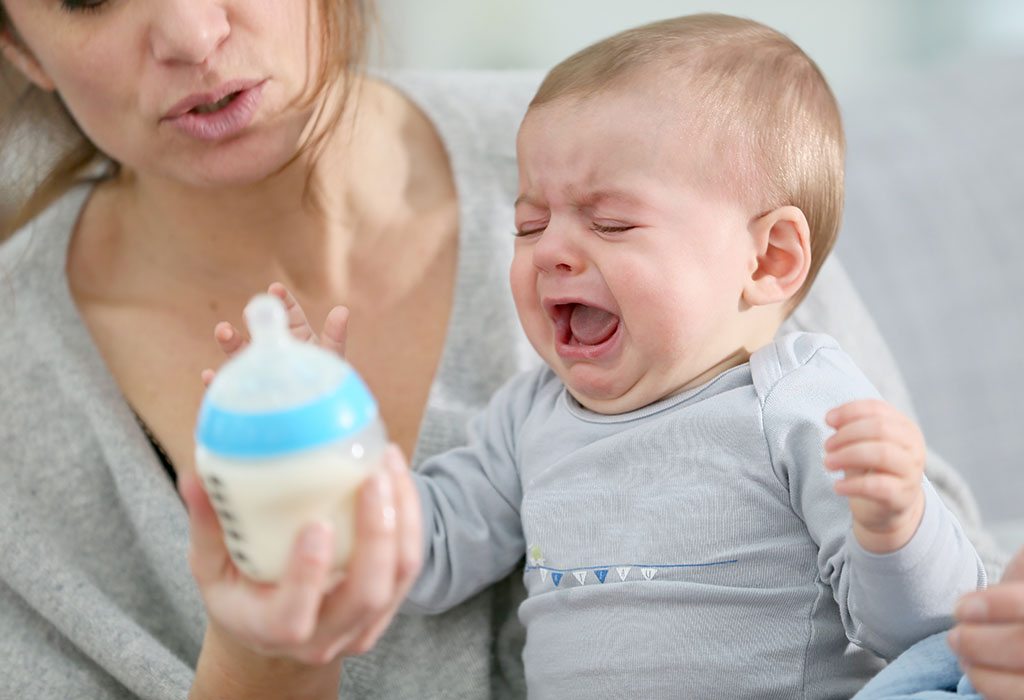 10 Common Bottle Feeding Problems and Solutions
10 Common Bottle Feeding Problems and SolutionsFood and Solutions Problems In this article Updated September 14, 2020 Feeding a baby is not the easiest task in many situations. In addition, bottle feeding can be a more difficult task than breastfeeding when your baby rejects the bottle. When a baby refuses to feed bottles, weeps or pulls his head away, he doesn't swallow and spills in place, it can be a sign that something is a mistake. This is what you should know about bottle feeding problems and how to approach them. Sign that your baby is referring to the feeding of the bottle A breastfeeding baby that denies bottle feeding is relatively common, and is not cause of alarm. Follow are some signs that your baby refuses. Common food problems and solutions There are several reasons why a baby refuses to feed bottles; the good news is that most of these reasons are behavioral in nature and can be addressed simply by observing the baby for vital clues. Below are some common problems associated with bottle feeding and solutions.1. The most common and easily correctible problem related to bottle feeding is the poor interpretation of hunger by new mothers. Babies tend to and other objects for several reasons that are not hungry. A baby can suck things out of anxiety, boredom or just be tired; many mothers misinterpret this as hunger. Trying to feed the baby on the basis of this behavior can result in the baby refusing to feed simply because he is not hungry. What to doIf the baby refuses to feed, do not force it, accept that they may have misunderstood and wait until the baby gives clearer hints of hunger.2. Misinterpret/Miscalculate the amount of food The second most common and easily correctible problem with bottle feeding is to miscalcify the amount of milk or a baby really needs. Sometimes parents make calculations based on expert opinion or simply guess your baby's daily milk or formula requirement. And sometimes, professionals make the mistake of not properly calculating the requirements based on the growth of the baby. Whatever the case, if a baby has had enough and is not hungry, it will refuse to feed. What to doThe commonly estimated feeding suggestions are only approximate figures and may vary from baby to baby. Some babies feed more than others. As noted above, wait until the baby has clearer tracks of hunger.3. The disturbed BabyHumans are naturally curious beings; this curiosity is evident as early as four months of birth. Once a baby has four months or more, his curiosity makes him more interested in everything around him. Other kids playing, pets acting, and even music and television can distract a baby and make him lose focus on feeding. What to doIf you feel that your baby is distracted, turning all the sound sources like television, music, etc. It is better to find a quiet room without people, children or .4. Tired Baby A baby can refuse to feed on bottles simply because he's tired. A baby who hasn't slept long enough gets tired quickly; while it's true that a hungry baby can sleep less, it's equally true for a sleeping baby to avoid feeding. He'll throw a fuss, cry or fall asleep while feeding. What to doSearch for an expert's opinion on sleeping and feeding schedules, or create a balanced schedule to avoid overlaying sleep time with feeding time. Also, make sure your baby is asleep enough and try to feed the baby before it gets tired.5. Individual feeding pattern Like all mammals, humans tend to show individual personality types, behavior patterns and eating habits very early in their life. Some babies like to consume large amounts of food at once; others like to feed a little at a time, but more often during the day. If your baby often refuses to feed bottles, then it is prudent to consider that you may not have fully understood your individual feeding pattern. Constantly feeding a baby can put stress added to the mother. Ideally, the individual baby pattern must be respected, but. If necessary, an attempt can be made to encourage a smooth and gradually change. What should encourage DoA baby to feed much of the necessary food in about forty minutes. However, it does not feed on force. Stop if the baby doesn't want to continue. Another approach to a frequent feeding pattern is to try to create longer intervals between feeds. Encourage the game, take the baby for an exit or let him sleep to gradually increase the time intervals between the feeds.6. Some babies may develop proteins or develop milk or formula intolerance. There are many factors that can induce feeding aversions, such as certain physical or oral problems and . Fortunately, most feeding aversions are the result of behavior problems that actual physical problems or medical conditions. What DoA feeding aversion can be a very complicated problem without easy or simple solutions. If everything else fails, then the only solution is to consult the experts to try to identify the root cause of this aversion.7. Newborn babies need to be fed frequently and even at night. Avoid feeding a baby, who has reached six months at night. If night feeding continues beyond six months it could result in a baby feeding formula denying bottle. This is not cause of alarm; it may simply be that the baby is based on feeding to sleep. Night feeding will not damage the baby, but since a baby only needs a certain amount of food every twenty-four hours, it can simply refuse to be fed with bottle during the day. What to doOnce the baby has reached the age of six months, parents should slowly and gradually consider discouraging night feeding. This can be done simply by encouraging the baby to feed more during the day.8. Solid foods In a perfect world, a baby should only be allowed after six months of age. In some cases, some babies need solid foods before. Solid foods usually have more calories and nutrition. As a result, the baby may lose appetite for bottle feeding. What to doFor babies, less than six months of age, they avoid starting solid foods. If you have already started feeding them, try to reduce the amount and if it is possible to stop feeding solid foods all together until the baby has crossed six months of age.9. Difficulties with the transition to food If you have been breastfeeding your baby beyond three months of age, then there is a high probability that the baby will find it difficult to transition to bottle feeding. Everything from the difference in feeding action between feeding bottles and breastfeeding to the difference in the flavor of the formula and , can cause this problem. What to doThe easiest way is to start by providing express breast milk in the bottle that way if the baby has a problem with taste, then that problem has been solved, and the transition would be easier to achieve. If this does not work, then it is advisable to try different nipples. 10. Bottle adjusted The bottle used for bottle feeding needs to keep neutral pressure so that milk flows smoothly. The empty milk of the bottle as a result of feeding will create a vacuum that needs to be filled with fresh air entering the bottle. If the milk bottle is not able to ventilate the baby you will find it more difficult and harder to feed as the negative pressure increases. Some babies get tired and sleep while others just stop trying. In some bottles, the air can only enter between the edge of the bottle and the nipple ring, if the nipple is too tightly screwed in the bottle the required venteo in the bottle will not take place. What to see the bottle for proper ventilation, and airflow. What to do if you have tried everything but still your baby renews the bottle? If all of the above has been tested and has not worked, there are some other approaches that can be tested.1. Creating a Relaxed AtmosphereSometimes a baby can be unsolved for unknown reasons; a human baby is very perceptive and can detect stress on parents. As a rule, if the mother is calm and relaxed, the baby will be more open to bottle feeding.2. Allowing the baby to be hungry A baby who is not hungry will complain about being fed. Too much hunger can cause a baby's ease and discomfort, but a little hunger won't hurt the baby. Increase the time between feeding intervals and allow the baby to have some hunger.3. That someone elise Bottle FeedBabies who are struggling to make the transition from breastfeeding to bottle feeding will not accept being fed by the mother. It is advisable to encourage the parent or other family member to assume responsibility.4. Position suitable for bottle feeding If the baby is not in a comfortable position, it may refuse to feed with bottles. It is essential to keep the baby a little straight with the head that is positioned to be in a straight line with the body. The baby must be naked in his arms and also have support for his feet. It can be very frustrating when parents face babies who refuse to feed with bottles; fortunately common problems associated with bottle feeding have simple solutions. If everything else fails. then seeking medical advice is the last and best resource. Read also: POPULAR POSTSLATEST
/478169271-56a6fd5c5f9b58b7d0e5de83.jpg)
Fixing Your Baby's Bottle Feeding Problems

Baby Crying after Feeding: Reasons & Tips to Stop

Tips for Bottle Fed Baby Gas | Happy Family Organics

Nursing Strike: What To Do When Your Baby Refuses To Feed | theAsianparent
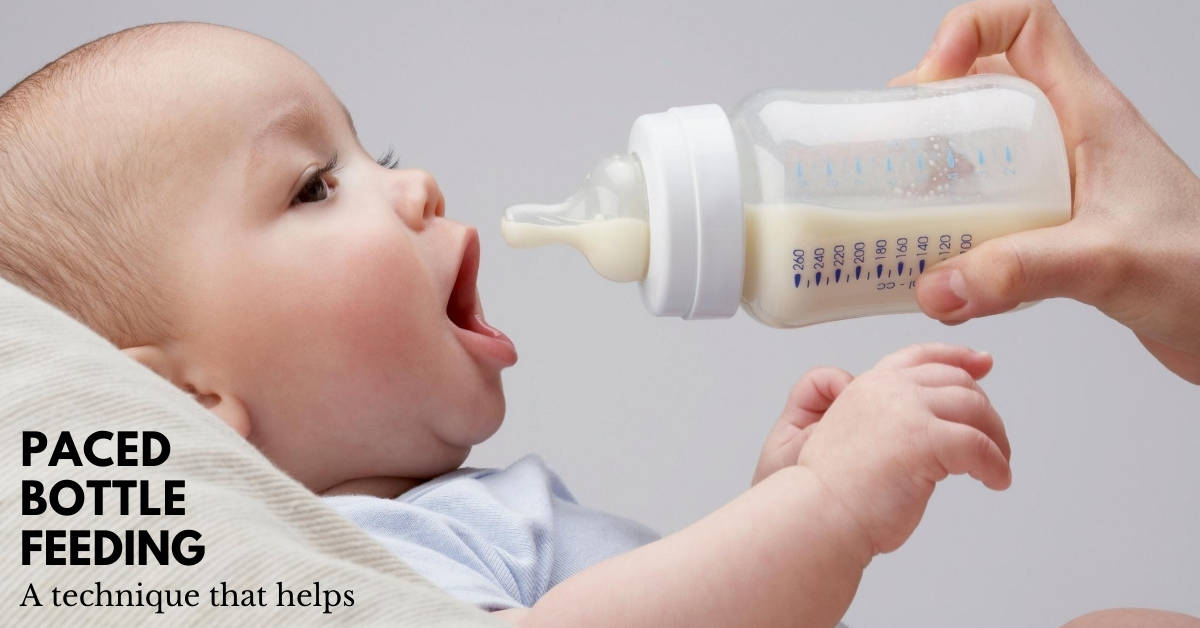
Paced Bottle Feeding | My Kids Lick The Bowl

When Baby Won't Take a Bottle - Breastfeeding Support

Baby Crying After Feeding: What Should You Do? - Mom Loves Best

Bottle-Feeding Babies: Giving the Bottle
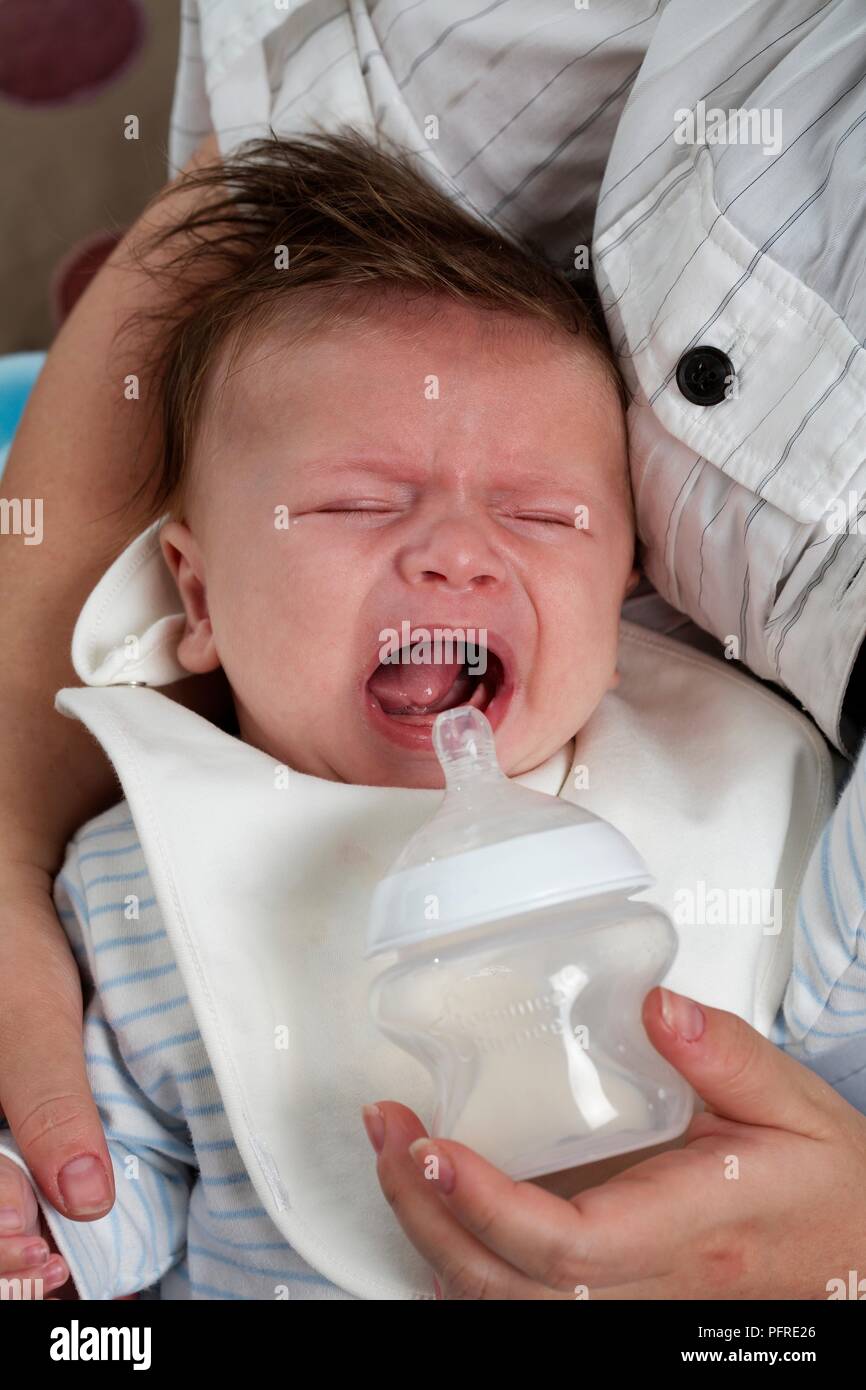
Baby Crying Bottle Milk High Resolution Stock Photography and Images - Alamy

Baby Cries During Bottle Feeding: Fixing Feeding Problems
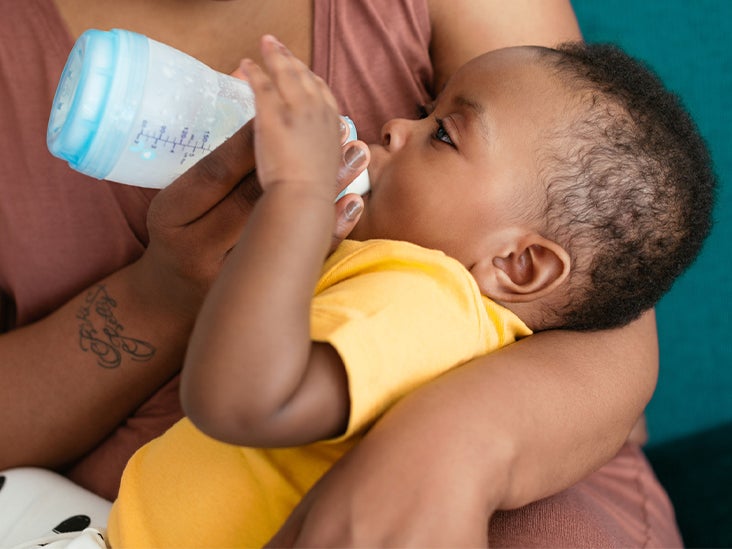
How to Bottle-Feed a Baby: Everything You Want to Know

How to tell what's wrong with a fussy bottle feeder - Kidspot
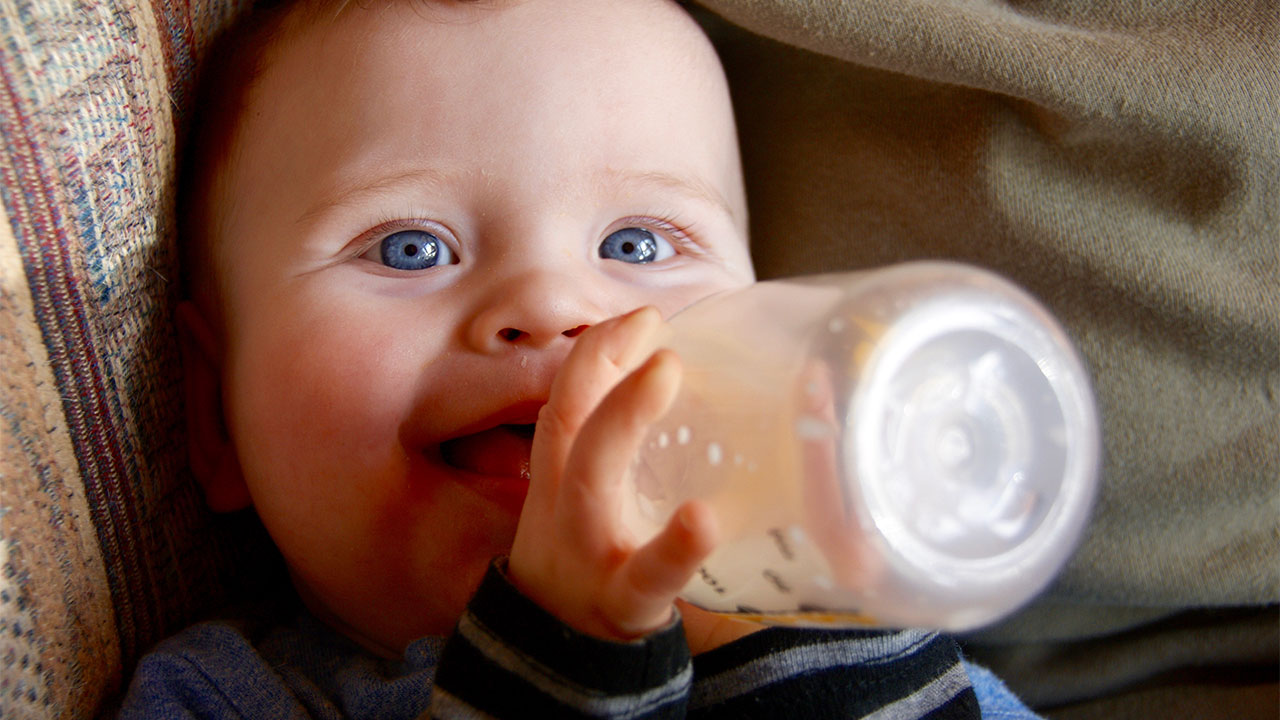
Mixed feeding: supplementing with formula | Raising Children Network
Tips for Bottle-Feeding Problems
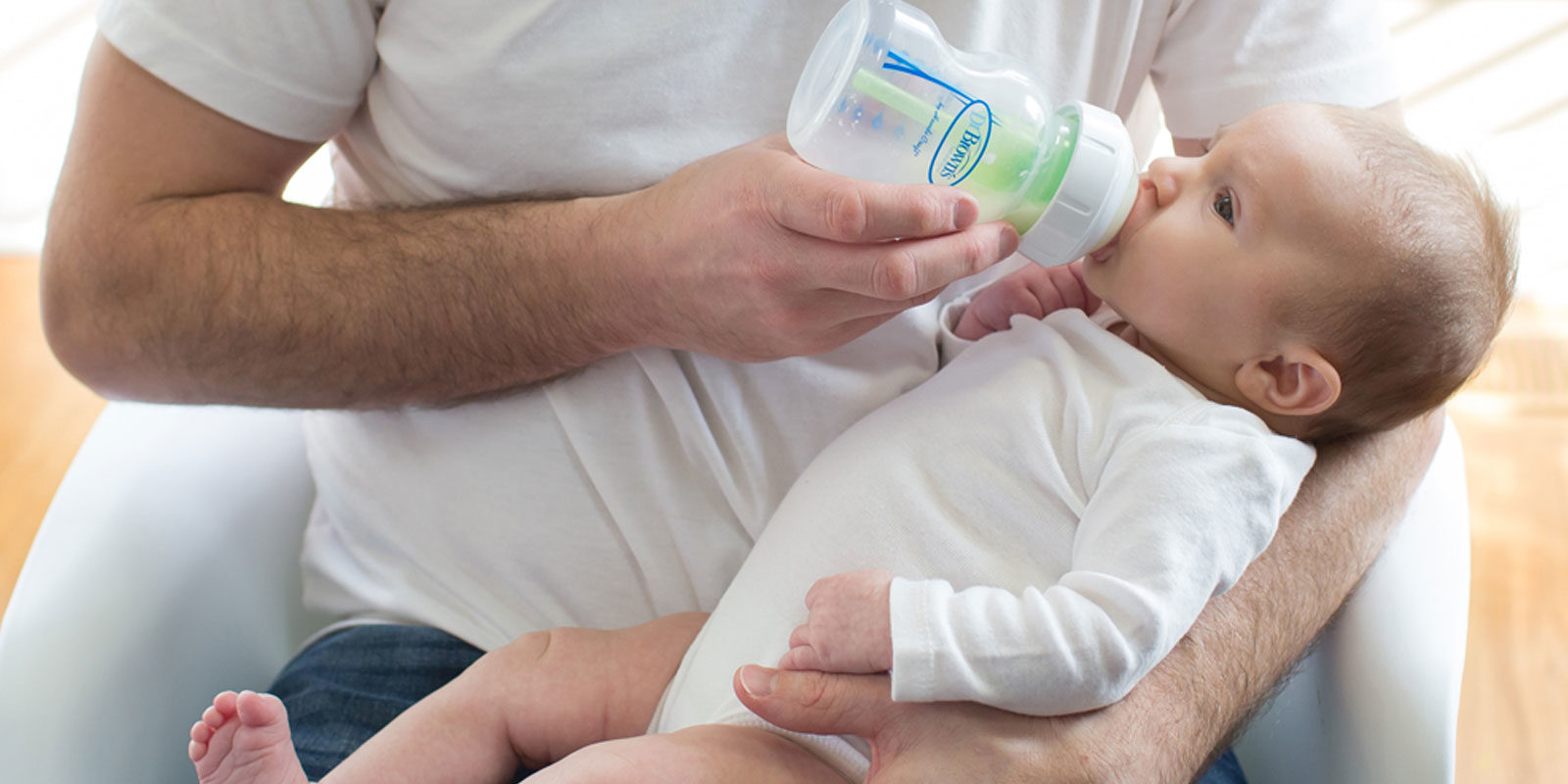
6 Bottle Feeding Tips for Dads | Dr. Brown's Baby

Baby Cries During Bottle Feeding: Fixing Feeding Problems

What to do if your baby cries while bottle-feeding | Bottle feeding newborn, Bottle feeding, Baby crying
![Baby Squirms and Cries While Bottle Feeding? [Why & What To Do!] - Natural Baby Life Baby Squirms and Cries While Bottle Feeding? [Why & What To Do!] - Natural Baby Life](https://naturalbabylife.com/wp-content/uploads/2020/01/Baby-is-Crying-While-Bottle-Feeding.jpg)
Baby Squirms and Cries While Bottle Feeding? [Why & What To Do!] - Natural Baby Life

How to Bottle Feed Properly | Infant Care - YouTube
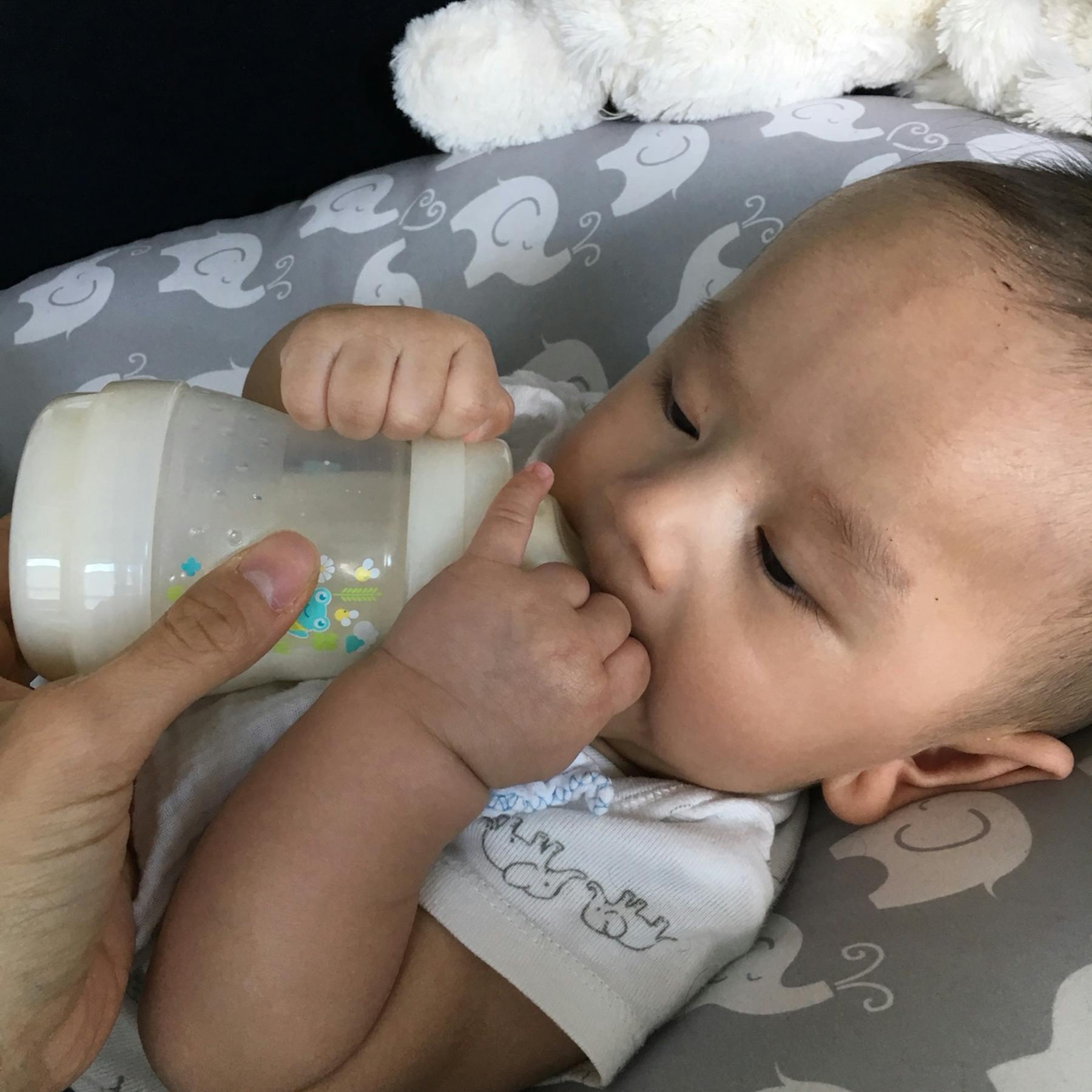
Anybody else have a 4-month-old baby who's becoming more and... - Winnie

Introducing your breastfed baby to the bottle or cup | BabyCenter
/157859430-56a0596f5f9b58eba4b000cb.jpg)
Why Is My Baby Always Hungry?
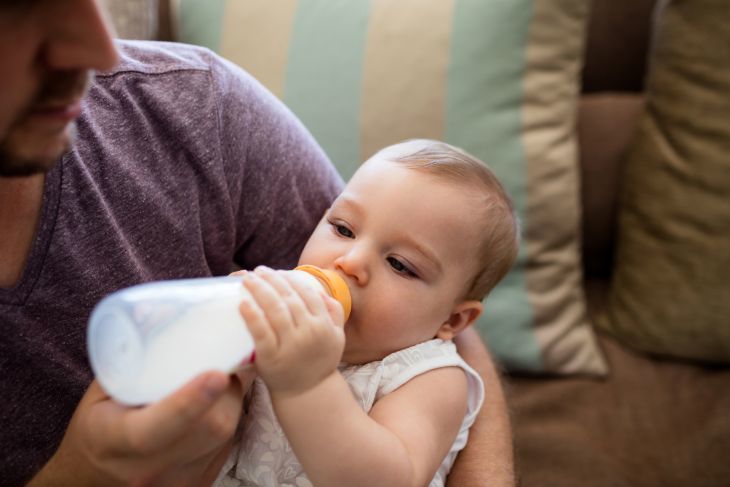
How to Bottle Feed Your Breastfed Baby (25 Pro Tips) - Mom Loves Best
Formula-Feeding Your Baby
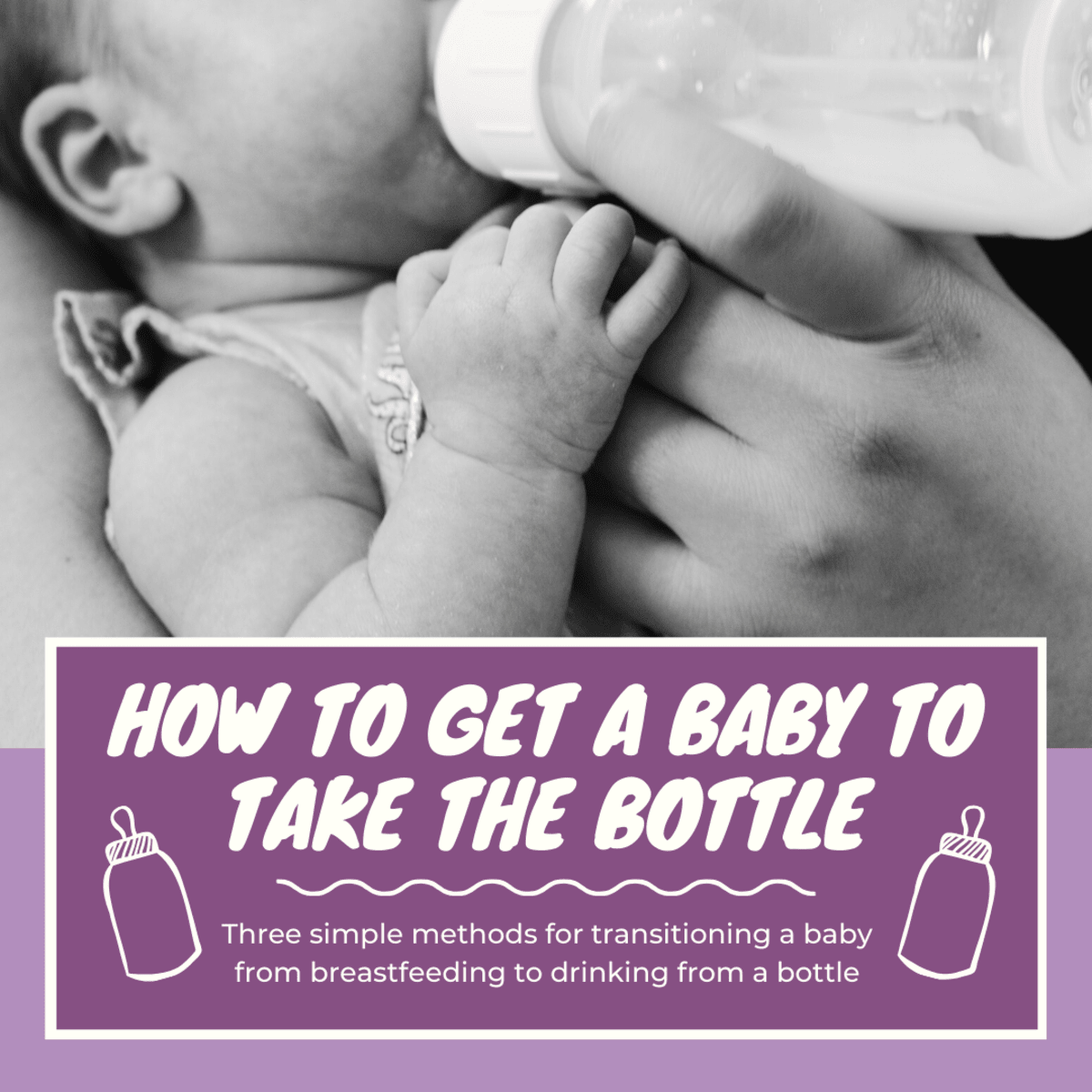
3 Ways to Get a Breastfed Baby That Won't Take a Bottle to Drink - WeHaveKids - Family

How to Bottle Feed Your Breastfed Baby - Without Tears
Expert Advice On Feeding Your Children - Feeding Littles

My baby fusses or cries when breastfeeding - what's the problem? • KellyMom.com

How to Bottle Feed a Baby | Parents

Baby Cries After Feeding: What Should I Do?

Amount and Schedule of Formula Feedings - HealthyChildren.org

Tips for bottle-feeding your baby | NCT

Let's Face It: Formula-Fed Babies Sleep Better – Expecting Science

Bottle-Feeding 101: How to Bottle-Feed a Baby
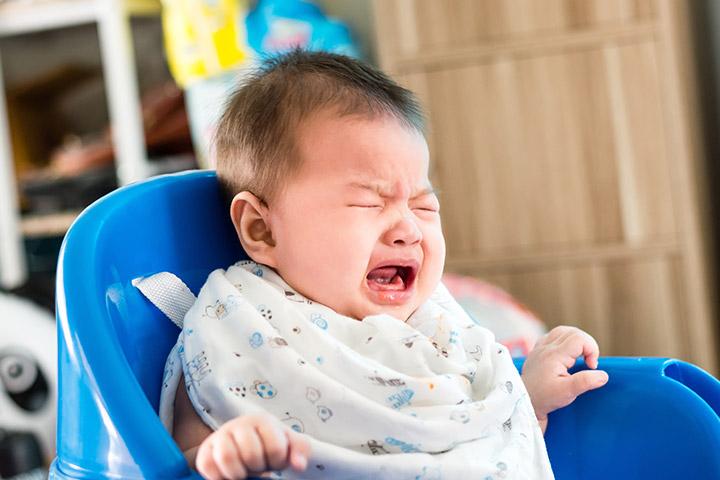
Baby Cries After Feeding: What's Normal & When To Seek Help

How to End Your Baby's Bottle Strike | Sleeping Should Be Easy

How to encourage your breastfed baby to take a bottle - Kidspot
How to combine breastfeeding and bottle feeding - Today's Parent

Baby Crying During Sleep | Children's Hospital Colorado
Expert Advice On Feeding Your Children - Feeding Littles
Posting Komentar untuk "baby crying during bottle feeding"